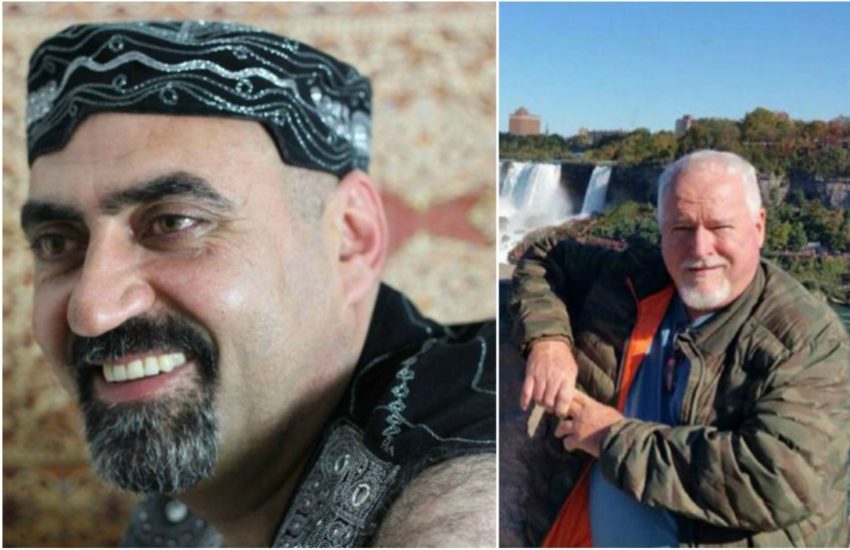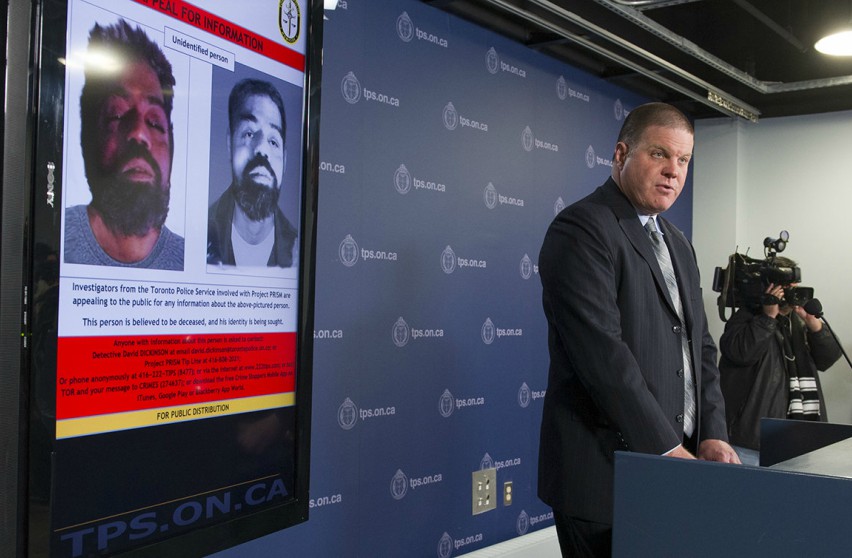Det Sgt Hank Idsinga of Toronto Police announces the seventh murder charge against Bruce McArhthur. | Photo: Toronto Police
Police have charged the man accused of allegedly murdering gay men in Canada, Bruce McArthur, with a seventh murder.
McArthur, a 66-year-old garden landscaper from Toronto, was first arrested in January this year.
Canadian police decided to review homicide cold cases dating as far back as 1975. They’re reviewing at least 15 cold cases between 1975 and 1997.
The latest charge came after police allegedly linked McArthur with the 2010 disappearance of Abdulbasir Faizi.

Abdulbasir Faizi (L) and Bruce McArthur. | Photo: Toronto Police and Facebook
Along with Faizi, police also charged McArthur with the murders of Majeed Kayhan, Soroush Mahmudi, Dean Lisowick, Selim Esen, Andrew Kinsman and Skandaraj Navaratnam.
Toronto police said McArthur would using gay dating and hookup apps to target the men and then meet them in the city’s Gay Village.
Police found dismembered remains of at least six bodies in pot plants at a property where McArthur had worked. Police has yet to identify one of the bodies.
So far, all the victims were from South Asia or Middle Eastern descent.
Never seen anything like this
At the time of McArthur’s arrest, a police spokesperson said ‘the city of Toronto has never seen anything like this’.
Detective Sergeant Hank Idsinga is leading the investigation into McArthur.
He said on top of looking at cold cases, police would search at least 75 properties where McArthur worked as a landscaper.
‘We really don’t know how deep this is going to go,’ said Idsinga.
‘We just don’t know yet.’
Tensions with the LGBTI community
Toronto’s LGBTI community is angry at the police for ignoring their early warning that a serial killer was targeting men in the Gay Village.
As a result it asked police not to march in this year’s parade because it has ‘significant work… to do to build the kind of trust that would make their participation appropriate’.
‘The individual stories and lived experiences of each of these people were unique,’ Pride Toronto said in a statement.
‘But what they did share was that the investigations into their disappearances were insufficient, community knowledge and expertise was not accessed and despite the fact that many of us felt and voiced our concerns, we were dismissed.
‘As a result, the group said it was left feeling more vulnerable than ever. “This has severely shaken our community’s already often tenuous trust in the city’s law enforcement.’







